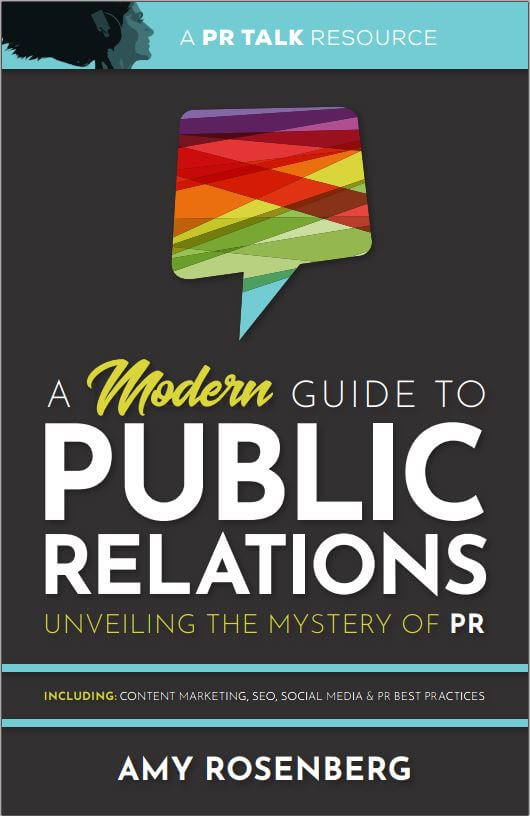Reporter of “Last Resort,” Nigel Jaquiss,
Talks Investigative Reporting
And Why It’s Important to Invest in Relationships with the Scary Reporters
Perhaps the most well-known journalist working in Oregon today, Nigel Jaquiss’ twenty-year career at Portland’s alternative weekly newspaper, Willamette Week, has been prolific. Nigel is the reporter who took down Oregon Governor John Kitzhaber for using his position of power to benefit his fiance’s business, resulting in the first resignation of an Oregon Governor because of a scandal. He broke Portland Mayor Sam Adams’ romance with his 17 year old intern. And most notably, he won a Pulitzer Prize for unveiling the years of sexual abuse Oregon Governor Neil Goldschmidt inflicted on a 14 year old girl when he was Portland’s Mayor.
Nigel came to journalism rather late in his career, working first as a crude oil trader for some of the biggest investment banks on Wall Street. So as we began our conversation, I was anxious to ask him how he came to leave that career in favor of something so different.
“I’m Interested in Telling Stories”
When Nigel was in his early 30’s his father died unexpectedly, and his mother succumbed to lung cancer not long after. “That really focused me on the obvious fact that life was short,” he said. After the birth of his first daughter, he began asking himself if he was really doing what he wanted to do. Ultimately he decided that the answer was no.
He’d always loved writing, so Nigel decided to leave his oil trading career and try his hand at a novel. But like any good oil trader, he had a back up plan ready in case it didn’t pan out. For Nigel, it was journalism school. “My backup plans turned out to be my plans,” he joked.
After earning his Master’s Degree from the Columbia University Graduate School of Journalism in 1997, Nigel was hired at Portland’s Willamette Week and began turning out the high level investigative journalism he’s known for today.
After landing in journalism, Nigel stumbled into the investigative side of things, saying that he came to journalism wanting to write pieces he was interested in and that readers would be interested in consuming, which is more of a features reporting approach. “I’m interested in telling stories,” he said.
His first cover piece was about the best high school basketball player in the state who was playing with only a .81 GPA, which was acceptable at the time. After the story was published, outraged school board members changed the standards under which students could participate in extracurricular activities.
“I realized from that one sentence that you could change policy or change lives in some way,” Nigel said. “That’s what focused me on the idea that trying to find out things that people hadn’t known or didn’t know and bringing it to their attention could be really powerful.”
The Reporter of Last Resort
What would arguably become Nigel’s biggest story came to him almost as an afterthought. Neil Goldschmidt’s ongoing sexual abuse of a young girl while he was Portland’s mayor was something of an open secret among Oregon’s rich, powerful, and well-connected. The allegations were also known by certain members of the Portland press.
In 2004, as Goldschmidt began to reemerge into Oregon politics, reporters at the Portland Tribune and The Oregonian were given parts of the Goldschmidt story, but weren’t able to bring it to press for a variety of reasons. When I asked Nigel how he was able to put the pieces together after so many others had failed, he said it had a lot to do with Willamette Week’s unique position in the Portland news market. “I think it was the case of me being the reporter of last resort,” he said. “People tried other things and it didn’t work and so they’re like, ‘okay we’ve got nothing else to lose so let’s go to Willamette Week.’”
Now, nearly 15 years later, Nigel still finds himself thinking about the story that has defined so much of his career. “I often think about the number of people who knew about it and didn’t do anything about it, and the corrupting effect that would have on their lives,” he said. “They knew they were harboring crime and they knew they were benefiting from it. So how did they feel about that? How did it change their lives? How did it change the way they conducted themselves? It’s a terrible thing to know something that evil and do nothing about it.”
“That’s Not When You Want to Form a Relationship”
Of course, because this is a PR podcast, I wanted to talk with Nigel about how he interacts with PR professionals during the course of his work. He was quick to point out that Willamette Week’s journalistic emphasis doesn’t lend itself to traditional PR pitches. “The strength of many organizations is focus, and our focus has always been more about accountability and less about general news,” he said.
To get the paper’s attention, Nigel advises us to think outside of the traditional pitch. “So we’re not going to say, ‘hey new product launch in Washington County for a tech company,’ but a tech company in Washington County that is getting cross-wised with the county assessor’s office over an assessment is something we’d be interested in.”
But that’s not to say that PR pros should ignore the Willamette Week altogether. Quite the opposite. “The way that a relationship between a person in the PR business and the news business can work is if there’s a real relationship,” Nigel said. “Where there’s an understanding on both sides of what the other person does.”
This relationship becomes especially valuable for a PR pro finding their client on the opposite side of Nigel’s reporting.
“Even the most ethical, the most upstanding corporation or nonprofit in this city is someday going to do something they wish they hadn’t done,” Nigel said. “Or they’re someday – through perhaps no fault of their own – going to be on the wrong side of the news. It’s going to happen. It happens to everybody. And when it happens, you’ll have to form a relationship when you’re at your most vulnerable. That’s not when you want to form a relationship.”
Nigel has more to say about the relationship between PR and the press, so click through to hear the rest of my interview.
About the guest: Nigel Jaquiss
Nigel Jaquiss is a reporter for Willamette Week, an alt-weekly newspaper in Portland, Oregon. He received the 2005 Pulitzer Prize for Investigative Reporting for his story on Neil Goldschmidt’s long-hidden sexual abuse of a young girl while mayor of Portland.
Connect and follow Nigel on social media:
This episode of PR Talk is brought to you by PRSA Oregon
Throughout Oregon and Southwest Washington, PRSA provides members with networking, mentorship, skill building and professional development opportunities – whether you are a new professional fresh out of college or a skilled expert with 20 years in the industry. Check out PRSAoregon.org for more information on how membership can help you grow and connect.
PR Talk is sponsored by monday
In such a fast-paced, multi-faceted work environment, it can be tough to stay on top of everything. monday is the collaboration tool trusted by businesses of all kinds to help cut down the clutter and streamline productivity. Learn more at monday.com and signup for a free trial. You’ll see in no time why so many teams around the world are choosing monday for their project management needs.
PR Talk listeners can use the coupon code BetterExecute for a 15% discount.
PR Talk is sponsored by monday
In such a fast-paced, multi-faceted work environment, it can be tough to stay on top of everything. monday is the collaboration tool trusted by businesses of all kinds to help cut down the clutter and streamline productivity. Learn more at monday.com and signup for a free trial. You’ll see in no time why so many teams around the world are choosing monday for their project management needs.
PR Talk listeners can use the coupon code BetterExecute for a 15% discount.









Just listened to your podcast with Nigel Jaquiss I’m the “somebody” he referred to who took the whole story to The Oregonian in 2003. Needless to say, I wish I had gone to Nigel instead.
As PR specialists, you might be interested in how Brian Gard turned the years-long repeated rape of a child beginning when she was 13, into a brief affair with a high school student. Or the fact that from the age of 16 on, Lee Weinstein knew about and covered up Goldschmidt’s crimes.
I wrote this op-ed on “who knew” when Goldschmidt’s victim died at age 49:
http://special.registerguard.com/csp/cms/sites/web/opinion/25854381-47/neil-goldschmidt-girl-omelas-portland.csp
Fred Leonhardt
Hi Fred, Thank you very much for submitting your beautifully written article that is so heartbreaking to read. It’s sad to hear this news, not just about our PR colleagues, but also about the many bystanders that ignored this atrocity as it happened right before their eyes. Most importantly, thank you for being brave enough to come forward for this girl and future victims (of not only Goldschmidt but other perpetrators). Consider yourself among the lucky few that place people and ethics above profits and power.